Clarifying the principle of hierarchy
Participating in giving comments on the draft Law on Construction (amended), delegate Tran Duc Thuan said: through studying the draft, there are many new points in the direction of reforming administrative procedures, increasing decentralization and delegation of power, but they need to be completed to ensure consistency and feasibility in law enforcement, especially for contents related to decentralization, delegation of power and national defense and security requirements.
Delegates commented that the policy of decentralization and delegation of power is correct, consistent with the general trend of administrative reform, enhancing the initiative and self-responsibility of localities and establishments. However, if decentralization and delegation of power are not linked to the control mechanism and ensuring corresponding resources, it will easily lead to the situation of "decentralization but not decentralization of power", causing congestion in implementing tasks.
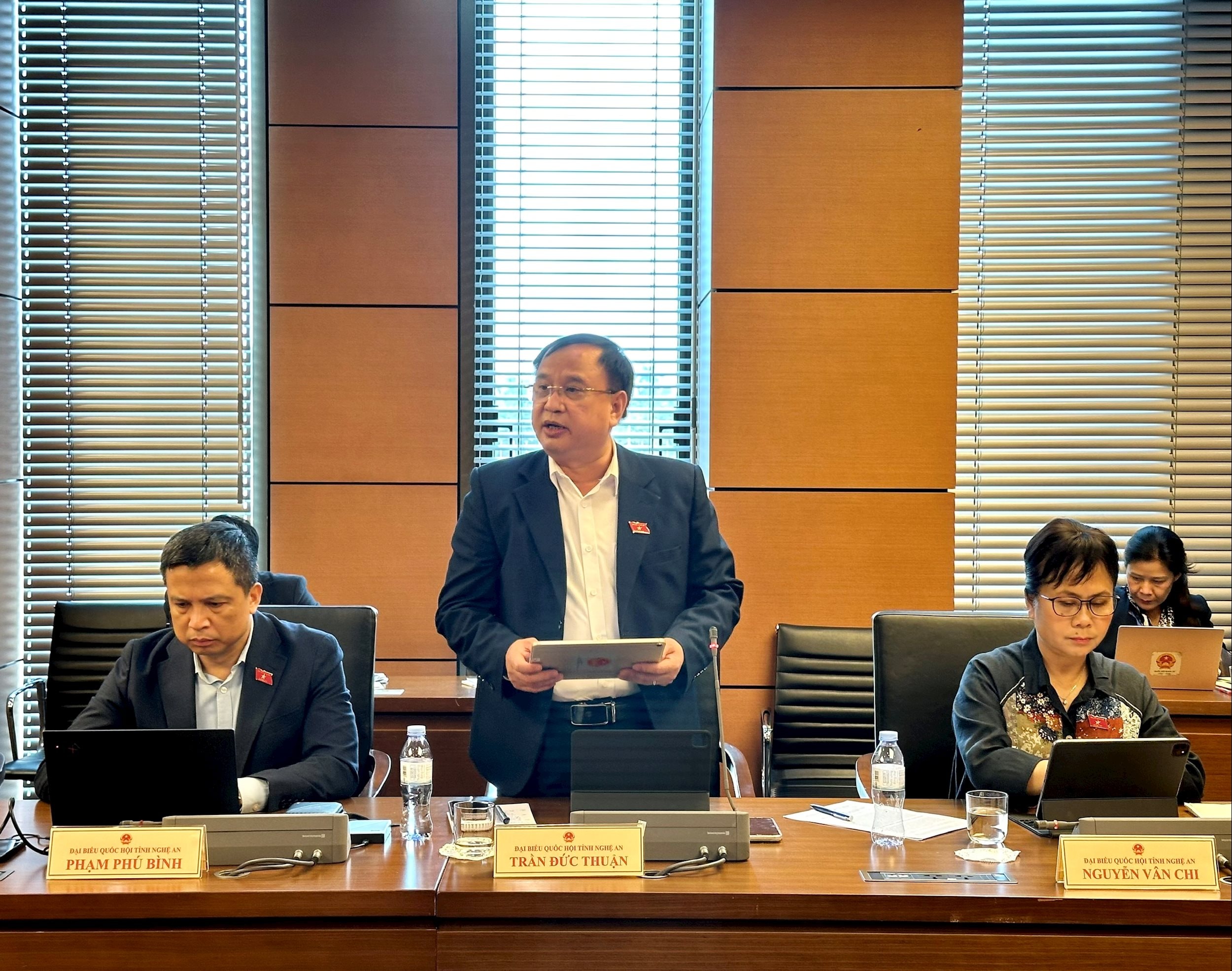
From that reality, delegates suggested that the Government and the drafting agency clarify the principle of decentralization and delegation of power in the draft Law on Construction (amended). This principle needs to be closely linked to resource allocation, responsibility and the mechanism for monitoring and controlling power. When assigning more authority to localities, it is necessary to simultaneously take into account the conditions of human resources, finance, organizational apparatus and implementation tools to ensure that tasks are performed effectively and substantially.
The delegate emphasized that the Construction Law plays a role as a fundamental law in the construction sector, closely related to many other specialized laws such as the Investment Law, Bidding Law, Housing Law, Urban and Rural Planning Law, Land Law, Law on Management of National Defense Works and Military Zones... If the provisions of the Construction Law are not carefully reviewed and compared with these laws, the risk of overlap and conflict will be very high, creating difficulties for the organization and implementation process, especially for works and projects with special requirements on national defense and security.
From there, the delegates suggested that the drafting agency continue to carefully review to ensure that the Law on Construction (amended) is as consistent as possible with the current legal system, avoiding the situation of "each law has a different interpretation", causing confusion for local authorities, investors and management agencies during the application process.
According to delegate Tran Duc Thuan, construction activities have a strategic connection with national defense and security tasks. Many construction projects, whether civil or economic infrastructure, can directly or indirectly impact the national defense and security situation.
Regarding ensuring national security and sovereignty, the delegate said that the draft law has mentioned the element of international cooperation in investment and construction activities, but has not yet highlighted clear principles on the requirements for ensuring security and sovereignty in projects with foreign elements or key and sensitive projects. The delegate suggested that the drafting agency and the appraisal agency study and supplement the principled provisions on ensuring national defense and security in the entire construction process, from planning, site selection, design, appraisal to construction and exploitation and use of the project, especially for projects related to information infrastructure, strategic infrastructure or key areas.
Regarding coordination with the management of military works, the delegate pointed out the fact that many fixed works systems of the Ministry of National Defense such as artillery positions, underground works, and command bunkers can be affected by the construction of surrounding civil works. The construction of high-rise buildings or large-scale works next to them can obscure the line of sight, change the direction of fire, reduce or eliminate the effectiveness of military works... Therefore, National Assembly delegate Tran Duc Thuan proposed to supplement regulations on the mechanism of close coordination with the Ministry of National Defense, the Ministry of Public Security and units directly managing military works when considering granting construction permits in related areas, avoiding the situation where problems are discovered only after civil works are completed, causing difficulties for national defense and security tasks.
Delegates also noted the strategic role of civil works in defense and security situations. Many works such as houses, hotels, factories, and technical infrastructure works serve economic and civilian purposes in peacetime, but in special situations they may need to be requisitioned to serve the defense of the Fatherland, for example, to arrange air defense positions, military bases, or positions serving command and information, etc. Therefore, it is necessary to study and specify more clearly the technical requirements, planning, and requisition and mobilization mechanisms for civil works of strategic significance, ensuring that when necessary, their functions can be converted to serve defense and security tasks in accordance with the provisions of law.
Switch to post-inspection but must tighten supervision and inspection
Regarding the orientation of shifting from pre-inspection to post-inspection mechanism in construction activities, delegates expressed their agreement in terms of policy because it is consistent with the trend of administrative reform, reducing procedural steps for people and businesses. However, delegates emphasized that post-inspection is only truly effective when accompanied by a system of clear and transparent regulations and standards, along with a strict monitoring mechanism.
According to the delegate, if only the pre-inspection stage is reduced without strengthening inspection, examination, and auditing, and without specifying specific responsibilities in each stage of licensing, acceptance, and final settlement of construction works, it is very easy for negativity to arise and legal loopholes to be exploited. These stages are directly related to the use of state capital and social capital, affecting the quality of construction works and the safety of people, so they need to be more strictly regulated in the law.
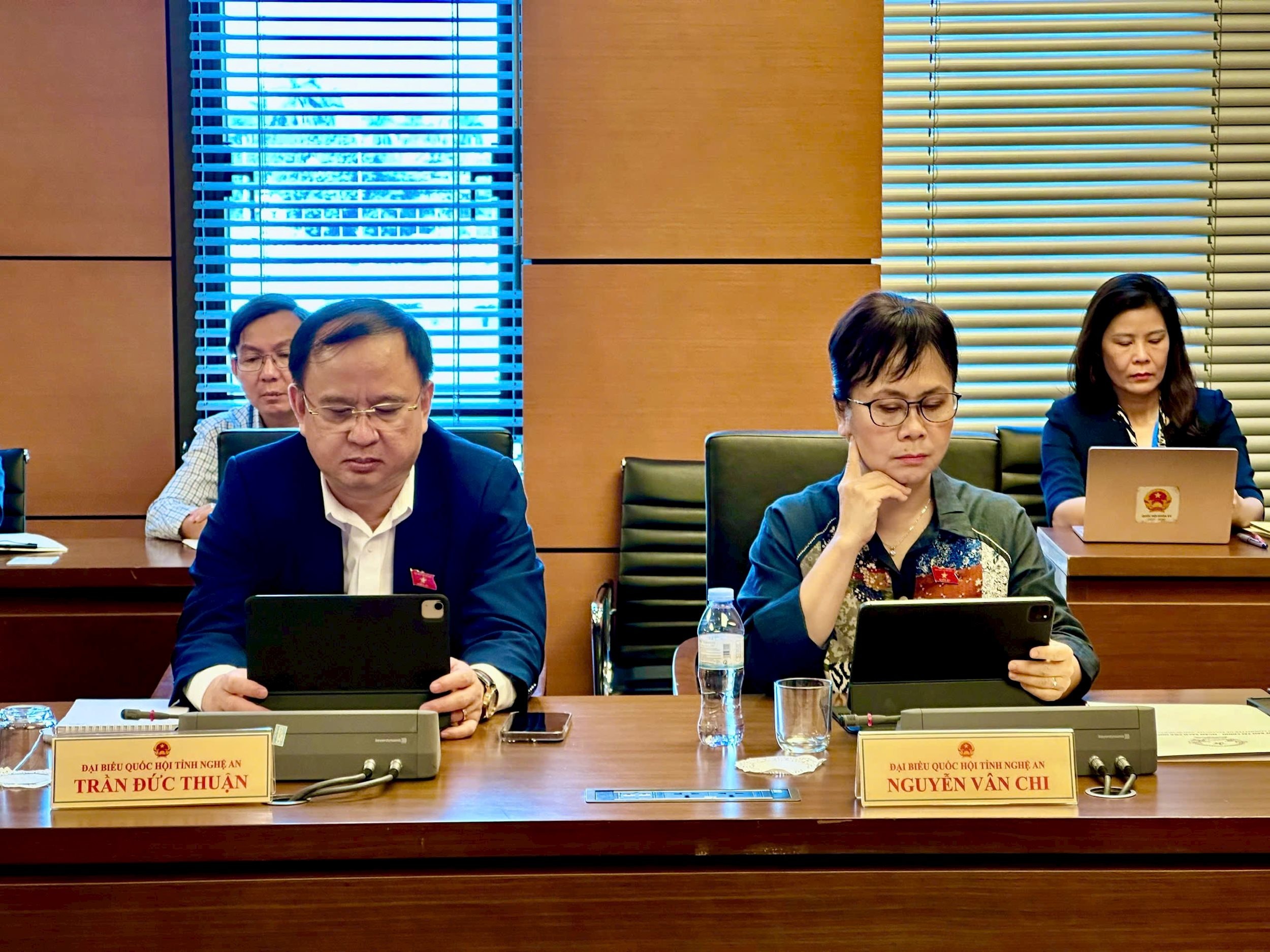
The delegates suggested that the drafting agency review the system of principles and add to the draft specific regulations on inspection, examination and social supervision of construction activities; at the same time, attach strict sanctions, in accordance with the Party and State's policy of fighting against corruption and negativity. Along with inspection and audit by state agencies, it is necessary to promote the supervisory role of the People's Council, the Fatherland Front, the press and the people in the locality where the project is implemented.
Regarding administrative procedure reform, delegates noted that the draft law has approached the direction of eliminating some types of certificates, exempting construction permits for some types of works, strengthening the self-acceptance mechanism, and self-responsibility of investors. These are amendments that people and businesses are interested in, creating convenience and reducing compliance costs. However, delegates said that it is still necessary to carefully review to clearly determine which types of procedures should really be eliminated and which types should still be retained, especially procedures related to urban aesthetics, architecture, safety, fire prevention and fighting and items that affect national defense and security.
In addition to the content of the law, the delegate noted that practice shows that many progressive provisions of the law take a long time to come into effect due to the slow issuance of decrees and guiding circulars... Therefore, the delegate suggested that the Government direct the development and completion of sub-law documents in parallel with the process of completing the draft, ensuring that when the Law comes into effect, the system of guiding decrees and circulars is also ready, helping new regulations such as the abolition of certain types of licenses and simplification of procedures to be applied immediately, creating a clear change in practice.
Regarding legislative techniques, delegate Tran Duc Thuan suggested that the drafting agency continue to review the entire system of concepts and terms used in the draft; especially new concepts, to ensure consistency and avoid the situation where the same concept is understood and applied differently in each locality and each agency, reducing effectiveness and efficiency in the implementation process.
Source: https://daibieunhandan.vn/tang-cuong-kiem-soat-phan-quyen-trong-xay-dung-gan-voi-yeu-cau-quoc-phong-an-ninh-10394653.html


![[Photo] Closing of the 14th Conference of the 13th Party Central Committee](https://vphoto.vietnam.vn/thumb/1200x675/vietnam/resource/IMAGE/2025/11/06/1762404919012_a1-bnd-5975-5183-jpg.webp)


![[Photo] Prime Minister Pham Minh Chinh receives the delegation of the Semiconductor Manufacturing International (SEMI)](https://vphoto.vietnam.vn/thumb/1200x675/vietnam/resource/IMAGE/2025/11/06/1762434628831_dsc-0219-jpg.webp)


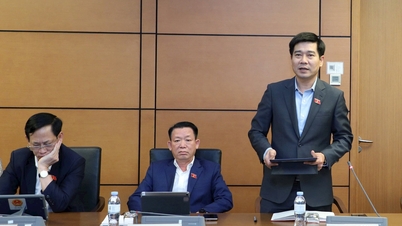
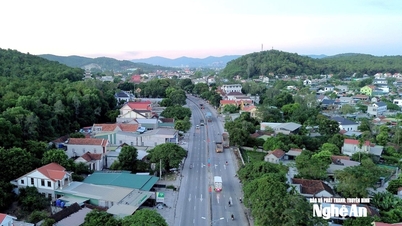



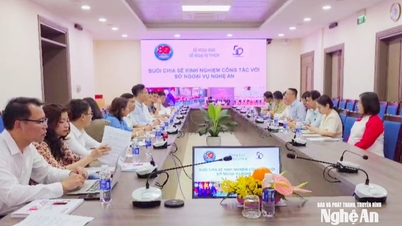

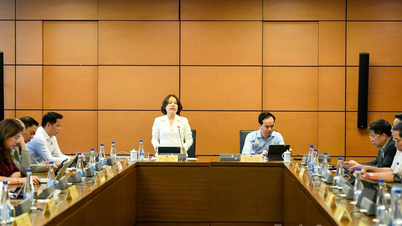

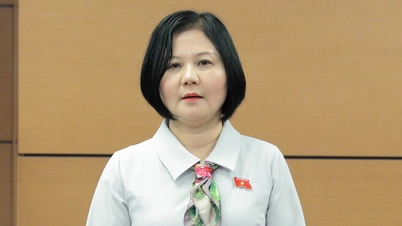


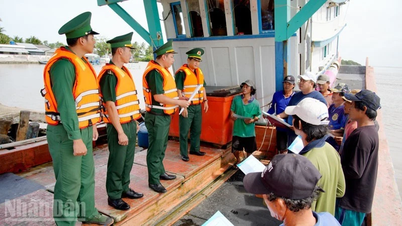
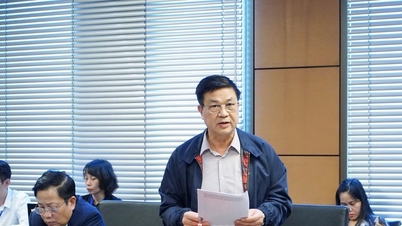
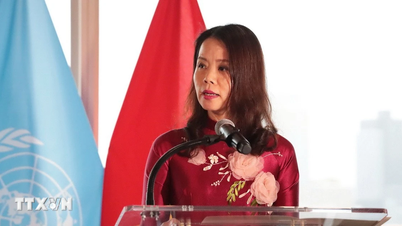

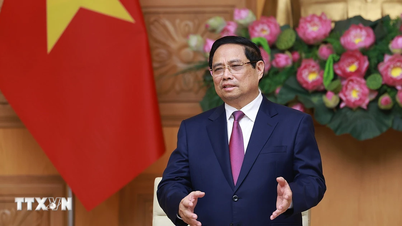






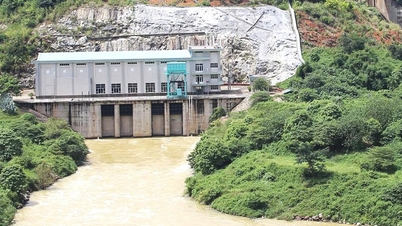
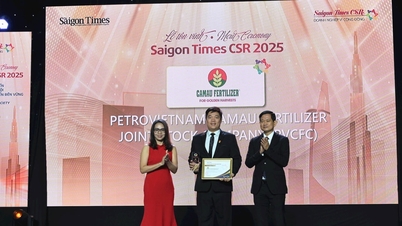
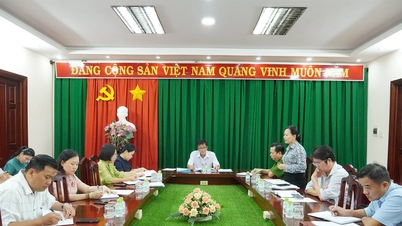
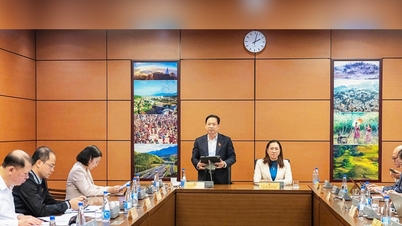
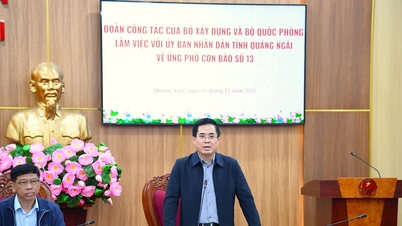
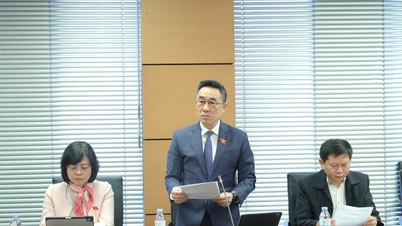



































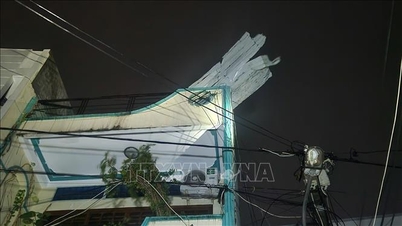
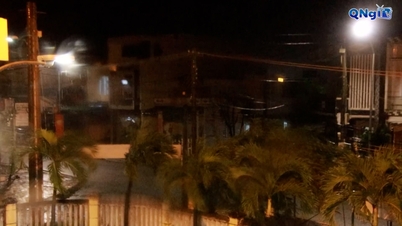

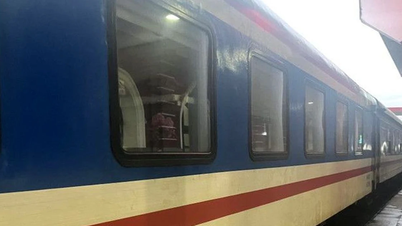

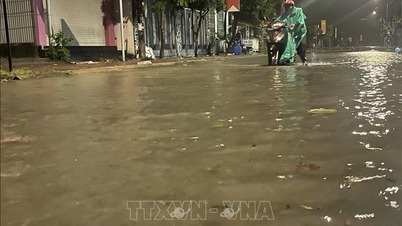

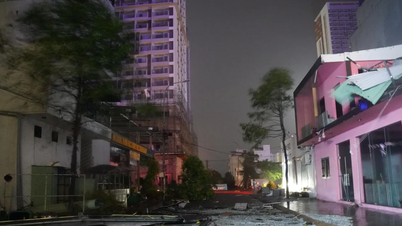










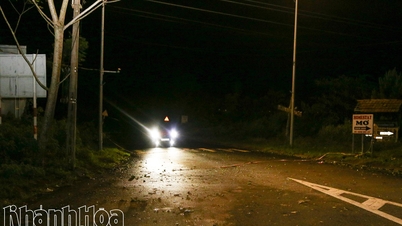

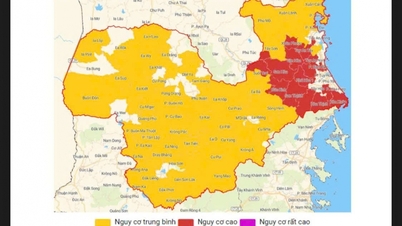

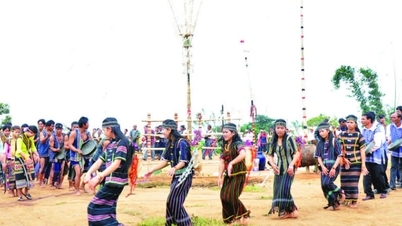

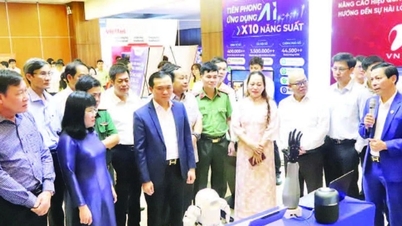

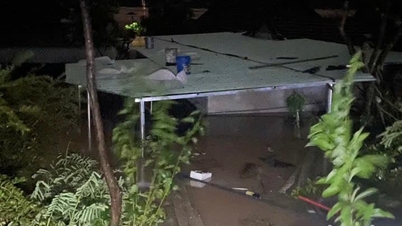












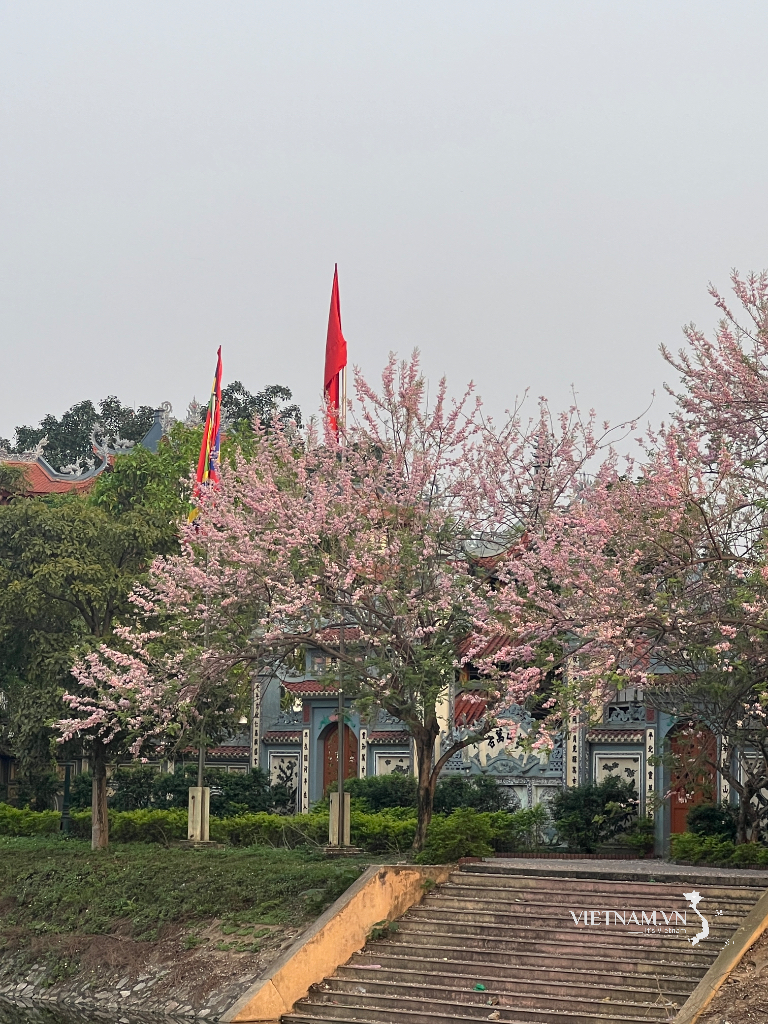


Comment (0)